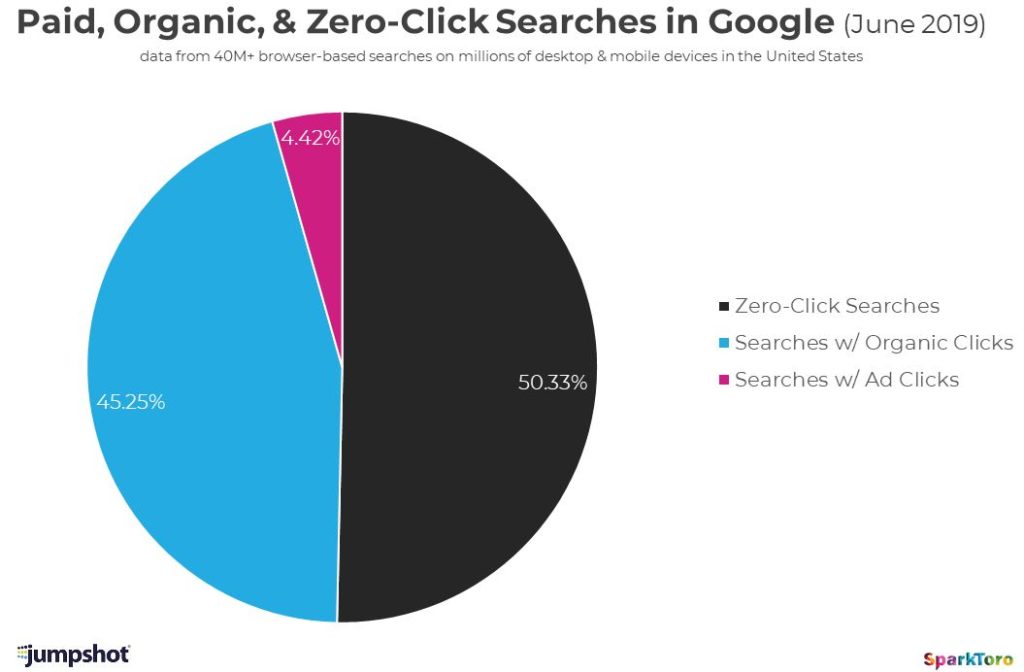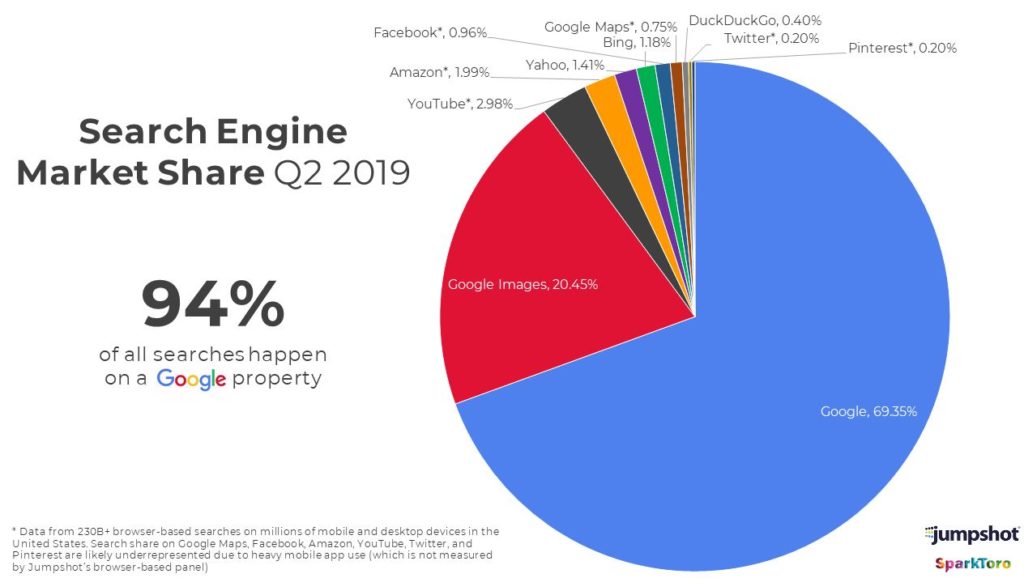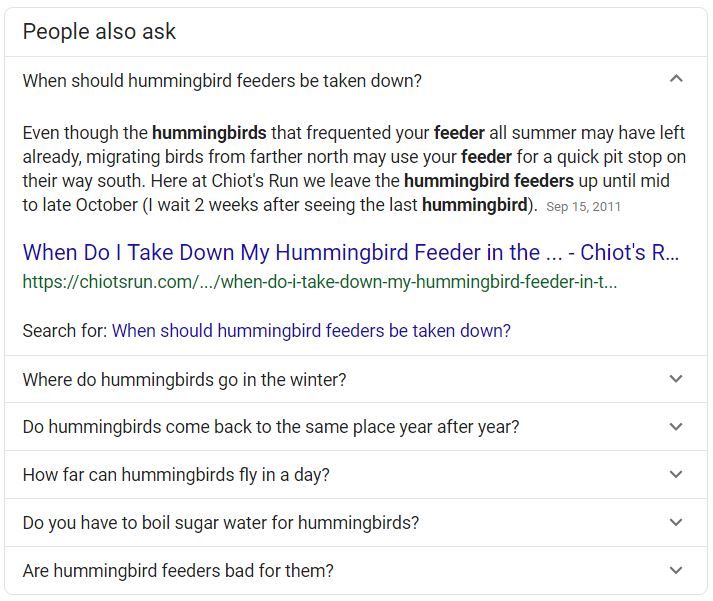New data published by SparkToro’s, Rand Fishkin reveals that the troubling trend of “zero-click” searches on Google is growing.
Next steps for search marketers
Zero-click searches result in users remaining on a Google-owned property such as Google.com, Google Images, Google Maps, and YouTube rather than moving on to a third-party website from an organic search result.
Mr. Fishkin first wrote about this phenomenon last October, highlighting how millions of queries are answered directly on the search results pages using content that Google scrapes from other people’s websites.
Zero-click searches outpace organic-click searches for the first time ever
The zero-click data, reported by data intelligence platform Jumpshot, reveals that zero-click searches comprised just under 55% of all searches on Google in June 2019. This is the first time zero-click searches have exceeded organic clicks since Google’s launch 20 years ago.

Fishkin makes an important distinction between zero-click searches which already cannibalize organic traffic to external websites versus Google sending traffic to their own properties – essentially, Google is doing both.
Fishkin notes that about six percent of queries and 12% of clicks are being funneled to Google-owned properties such as YouTube, Map’s, and Google’s own blog.
Google dominates mobile searches
The Jumpshot data referenced above only includes browser-based searches, but mobile search using Google properties is ubiquitous.
When factoring in mobile apps, Google’s total market share is a staggering 97% (including mobile and desktop searches). This number includes searches from the Google Maps, Google Search, and YouTube apps which are installed on everyone’s phone.

The Jumpshot data reveals a clear connection with the diminishing number of organic clicks to the increasing number of zero-click searches. That is, as the percentage of zero-click searches increases, the percentage of organic clicks from search queries goes down.
Case in point
- In Q1 2016, 54% of Google searches resulted in organic clicks. That dropped to 46% by Q2 2019.
- In Q1 2016, 44% of Google searches resulted in zero clicks. That rose to 49.8% in Q2 2019.
- Searches resulting in paid ad clicks have also fared better, rising from 2.1% in Q1 2016 to 4.1% in Q2 2019.
Fishkin points out that the rise in paid ad clicks is primarily due to Google’s mobile ad and instant answer strategies – with mobile paid ad clicks rising from 3.4% in January 2016 to 11.4% in June 2019.
The zero-click trend is likely being heightened by search behavior on mobile versus desktop devices. For example, users are less likely to click through to a website on their mobile device – a factor Google is capitalizing on with the rollout of ever-larger paid search ads and their “People also ask” feature which lists a series of questions and answers pulled from external websites.

Search clicks on desktop devices paint a steadier picture versus mobile devices, with organic clicks comprising 66% of searches in 2019 versus 68% in 2016.
Zero-click searches on desktops rose during this time, but only slightly, comprising 34% of searches in 2016 versus 32% in 2019.
Next steps for search marketers
Marketers should continue to optimize their websites for search engines as per usual, but the key takeaway from this new data is to diversify.
The continued ubiquity of mobile devices, voice search and voice assistants, and the ever-increasing trend of platform-centered browsing and searching (for example, walled gardens like Facebook and Amazon) are creating a dilemma for content creators and business owners – that is, how do we get people to leave these walled gardens and visit our websites?
The answer to this question is different for every business, but a good first step is to diversify where you place your ads and publish your content.
Have a solid social media marketing strategy that’s tied to a robust content strategy which includes a variety of content types. For example, video, blog posts, social posts, whitepapers, webinars) and promote this content widely and often.
The rise of zero-click searches is likely going to continue and I highly recommend you read Fishkin’s entire post about this trend. His insights are data-driven and always illuminating.
Whitepapers
Related reading
Despite how code-heavy and cumbersome technical SEO may seem, grasping its core concepts are closely within reach for most search marketers. Sure, it helps to have HTML chops or a developer on hand. But the idea of delivering top-tier technical SEO services shouldn’t feel as intimidating as it is for most agencies and consultants.
For ecommerce companies, it’s not too early to start preparing for the holiday season. Here are five search reports to pull now as you strategize for EOY.
What you need to know about the recent changes in the LinkedIn algorithm, how to create engaging content, and examples of brands using the platform well.
https://www.searchenginewatch.com/2019/08/21/zero-clicks-searches-on-google/





